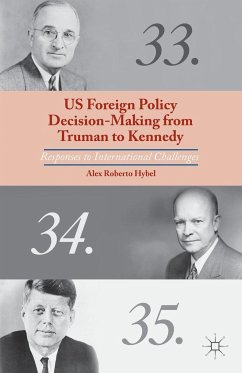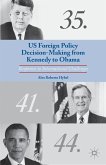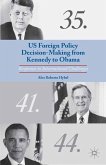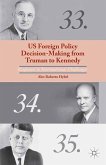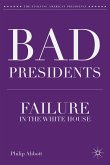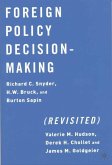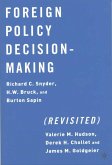The book has three objectives: to expose students to the ways different US presidents handled major foreign policy making problems; to test the explanatory value of alternative decision-making models; And to reintroduce students to a wide range of critical US foreign policy issues.
"Alex Roberto Hybel has provided foreign policy maker decision making scholars with unique insights into a crucial period in US history during which time the Cold War emerged and rose to highest level of tension. This important volume fulfils three objectives: it describes presidential decisions processes using rich case studies, it provides robust theoretical analysis of the cognitive system and mindset of the presidents, and it assesses leading foreign policy decision making models in light of decisions made during the era." Karl DeRouen, Jr., Professor of Political Science and, Director, B.A. Program in International Studies, The University of Alabama, USA
"We learn by stories, not PowerPoint slides, and Hybel and his co-authors expertly describe the foreign policy decision-making process in three presidential administrations. Detailed case studies are presented that are constructed around some nine analytical questions that seek to asses the quality of information provided each president and advisory team as well as the quality of the analysis and evaluation done by each president and the relevant advisors. The real strength of the study is the 'testing of the explanatory value' of various analytical models. His study suggests that no one model explains each situation and that rationality and belief systems or mindsets must be considered when trying to explain foreign policy decision. This is a comprehensive set of case studies that provide a thoughtful evaluation of most of the decision-making models used in foreign policy analysis today. A great text for teaching about the human dimension of decision-making and the importance of individual decision-makers in the formulation of foreign policy." Steven L. Lamy, Vice Dean for Academic Program and Professor of International Relations, University of Southern California, USA
"We learn by stories, not PowerPoint slides, and Hybel and his co-authors expertly describe the foreign policy decision-making process in three presidential administrations. Detailed case studies are presented that are constructed around some nine analytical questions that seek to asses the quality of information provided each president and advisory team as well as the quality of the analysis and evaluation done by each president and the relevant advisors. The real strength of the study is the 'testing of the explanatory value' of various analytical models. His study suggests that no one model explains each situation and that rationality and belief systems or mindsets must be considered when trying to explain foreign policy decision. This is a comprehensive set of case studies that provide a thoughtful evaluation of most of the decision-making models used in foreign policy analysis today. A great text for teaching about the human dimension of decision-making and the importance of individual decision-makers in the formulation of foreign policy." Steven L. Lamy, Vice Dean for Academic Program and Professor of International Relations, University of Southern California, USA
